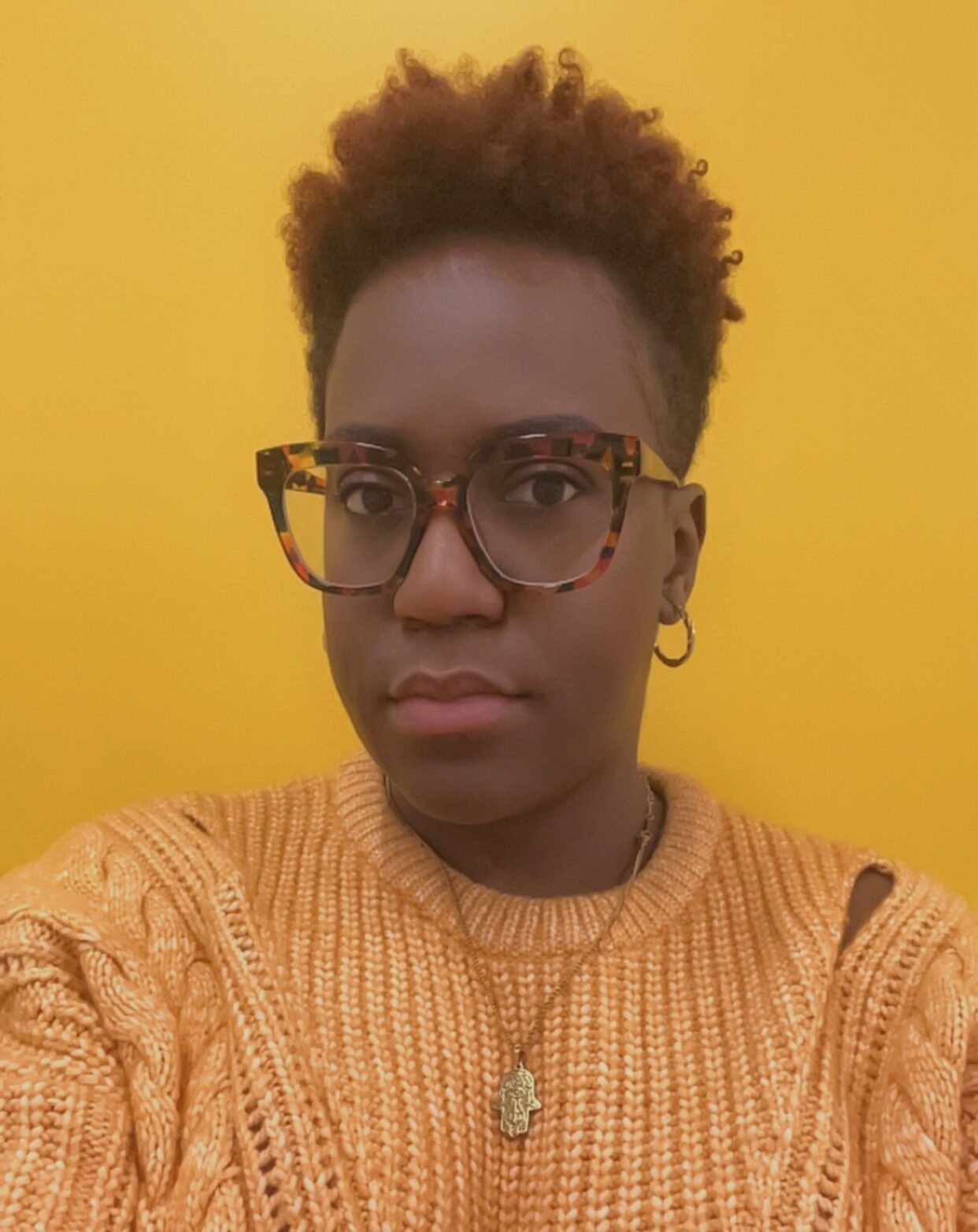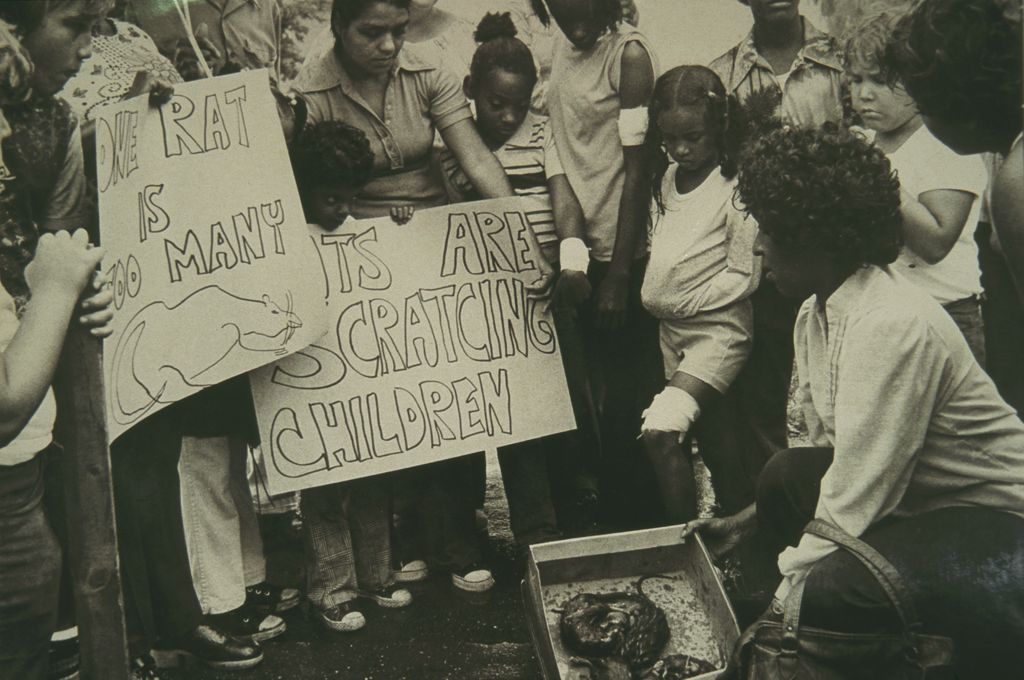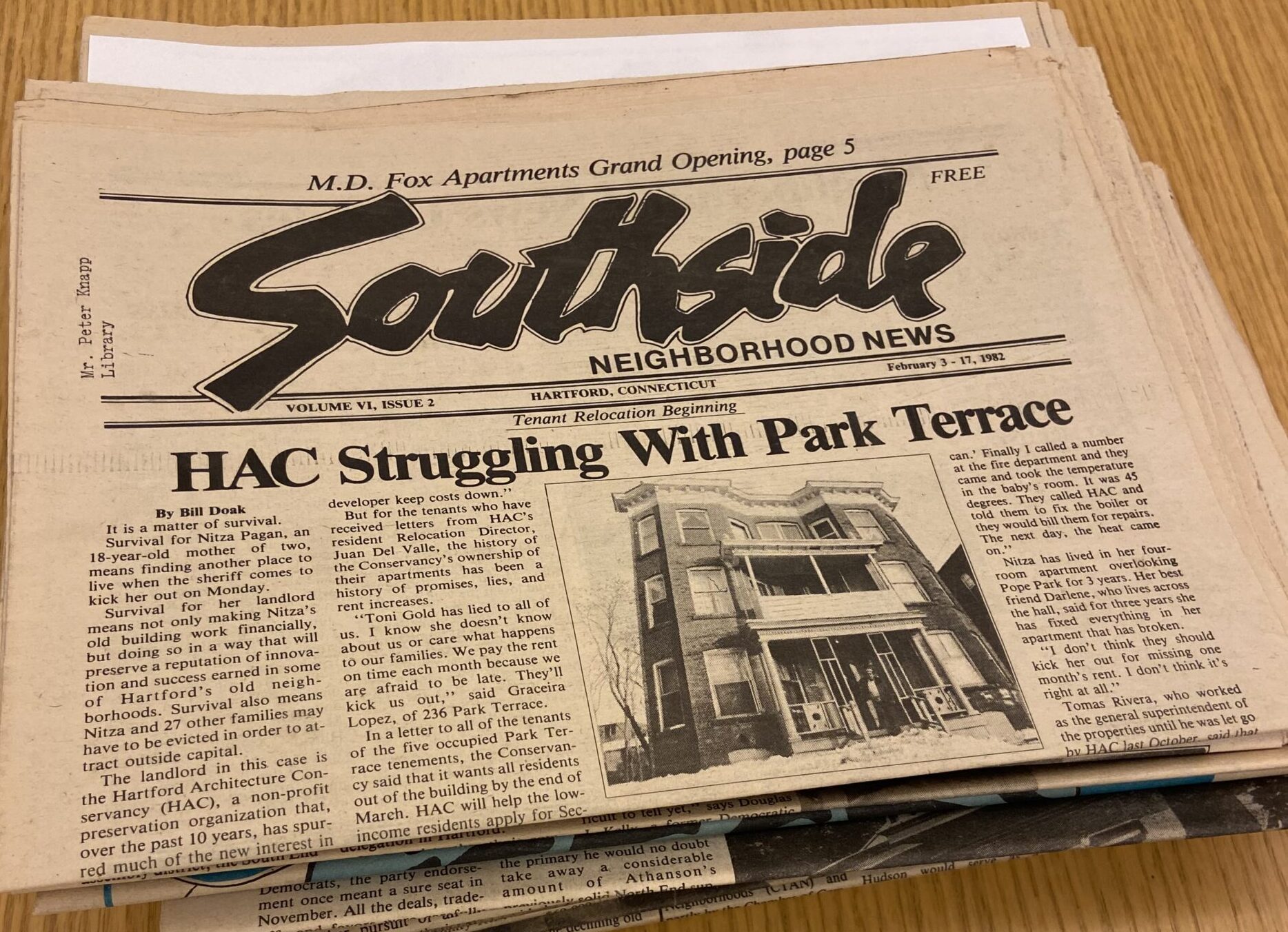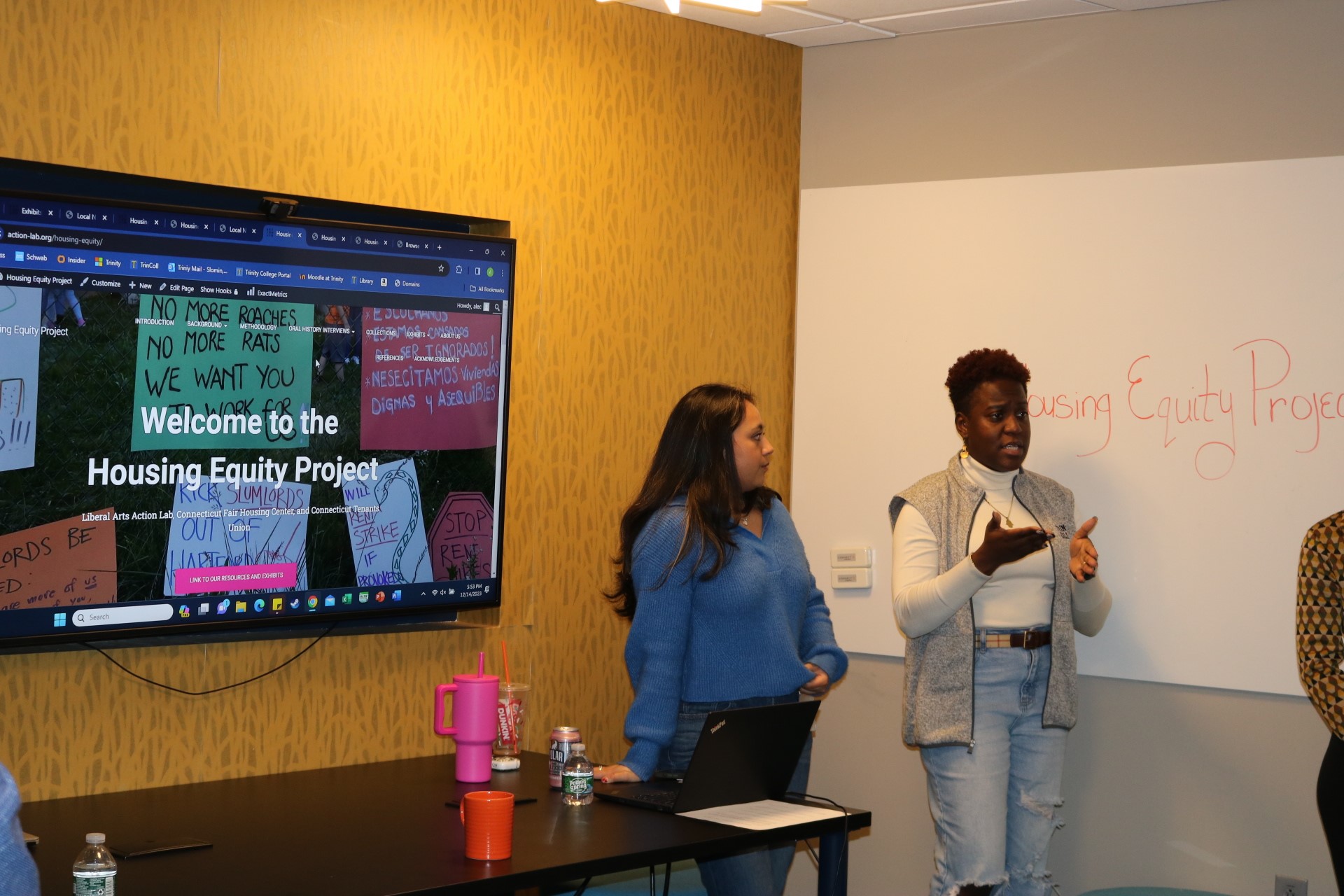From Community Partner to Liberal Arts Action Lab Student: Curating Hartford’s History of Tenant Organizing

A passion for housing equity has always been a part of my life even when I did not recognize it as such. I grew up in the Bronx as a first generation American, born to a Jamaican immigrant family; we, like many families, migrated to America for a better life and more opportunities. We lived in an apartment complex for most of my early life, and it wasn’t until my mother bought a house in Connecticut in 2005 and we moved to Waterbury that I got my own bedroom. Over the years, I have learned that my family’s story is not unique – often immigrant families cannot afford to buy a home when they first arrive in the U.S., and need to rent apartments managed by landlords who may not be fair or responsive. I learned how to advocate for my family while we were living in the Bronx even though I was the youngest and that experience sparked my interest in the recent Housing Equity Project in the Liberal Arts Action Lab. Even though I did not grow up in Hartford, for the past 4 years I have worked as the Education and Outreach Coordinator at the CT Fair Housing Center, through which I have hosted community events and canvassed in neighborhoods about housing-related issues. Hartford is a place with housing needs that are dire and need to be addressed, but it holds a special place in my heart as the capital of this state with great resources and potential.

This fall, I had the opportunity to join the Liberal Arts Action Lab’s ‘Housing Equity’ project as a Trinity student, which partnered with the Connecticut Fair Housing Center and the CT Tenants Union to capture the stories of past tenant organizers to encourage and inform the organizers of the present. The project asked questions such as, ‘What issues were past tenants facing?’ and ‘What tactics did they employ to effect change?’. For me, it was a unique experience being both part of the community partner organization (Connecticut Fair Housing Center) and a Trinity student. Both of my identities converged as I was able to impart housing equity knowledge from my role at work and learn new things with my classmates.
Our ‘Housing Equity Project’ aimed to build a chronological online database of tenant organizers and housing organizations in Hartford, so that individuals working in housing equity could use the archives to explore the issues tenants had faced between the 1960s and the 2000s. Our community partners plan to use these archives to support their advocacy and to inform current tenant organizers on tactics that have worked in the past that may be able to work today. Under the guidance of our professor, Ozlem Atalay, we brainstormed our research plan by exploring similar websites such as the Shoe Leather History Project, and the tenant movement in New York.

We started our research at Trinity College’s Watkinson Library. It was an amazing experience, and the staff was very helpful, pulling boxes of information for us to sift through. That experience helped us to realize how vast the pool of information was that we were compiling and helped us to manage our expectations of the project. We also examined archives at the Hartford Public Library’s Hartford History Center Branch. After the library research was completed, we scanned online archives on the Connecticut General Assembly’s website and searched Google Scholar using specific keywords. Lastly, and possibly the most enriching, we conducted oral history interviews. During the interviews, we inquired about past tenant organizers’ personal histories, including their family background, place of birth and upbringing, and involvement in the tenant organizing movement. We were curious about the reasons behind their interest in organizing as well as the obstacles and setbacks they encountered along the way.
“[The project website] is an incredible resource to explore and I’m already learning so much going through the website and interviews.”

This project was especially important to me because it was a grounding experience to bring other students into the work that I do for the Connecticut Fair Housing Center. It was a lot of work, and there is still more information to be added to the website that we built, but I felt a sense of pride in my teammates as we were presenting our project. My research teammates were like-minded individuals from both Trinity College and nearby CT State Community College Capital with an interest in building a project that would highlight the resilience of Hartford’s tenants, and they all had some personal connection to housing that compelled them to work to bring our community partner’s vision to life. When asked why he chose this project, Alexander Slomin ‘25, a Public Policy and Law major said: “I have some experience in addressing housing struggles within my home state [of New Jersey] and was excited at the opportunity to do similar work in Connecticut.” Alexander, Angelina Rose Varghese (Public Law & Policy ’25), Diana Martinez Lee (Public Policy and Human Rights ’24), Brayant Paulino (CT State Community College Capital, Psychology ’25), Phin Wright (International Studies ’26) and I (Sociology ’25) began to look through archives to find information. Sarah White, who was our main contact for the Connecticut Fair Housing Center and CT Tenants’ Union said, “It’s an incredible resource to explore and I’m already learning so much going through the website and interviews.” I hope this project will impact not only the current tenant organizers but also the Hartford community at large. Tenant organizing has a rich history, and it was an honor to work on this project.
